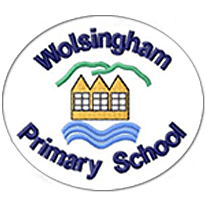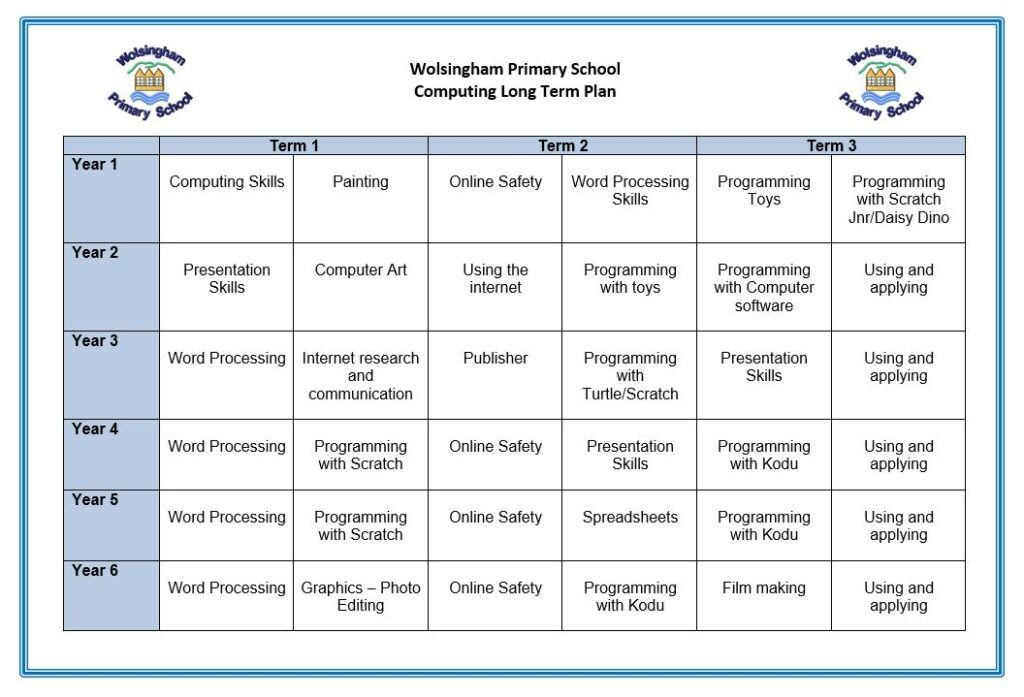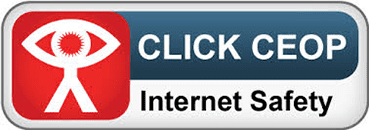In this section of the website, you will find information about our approach to teaching Computing at Wolsingham Primary School.
- The Intent provides information on the relevance of Computing at Wolsingham Primary School.
- The Implementation outlines how teachers at Wolsingham Primary School teach Computing across the school across all stages.
- The Impact outlines what outcomes are achieved for the children at Wolsingham Primary School.
- Subject Progression outlines the learning journey that our children take through Computing at Wolsingham Primary School.
- Useful Subject Information outlines any additional information about the teaching and learning of Computing at Wolsingham Primary School.
Intent of ComputingImplementation of ComputingImpact of ComputingSubject ProgressionLong Term Plan
Intent of Computing
Implementation of Computing
Impact of Computing
Subject Progression
Long Term Plan



